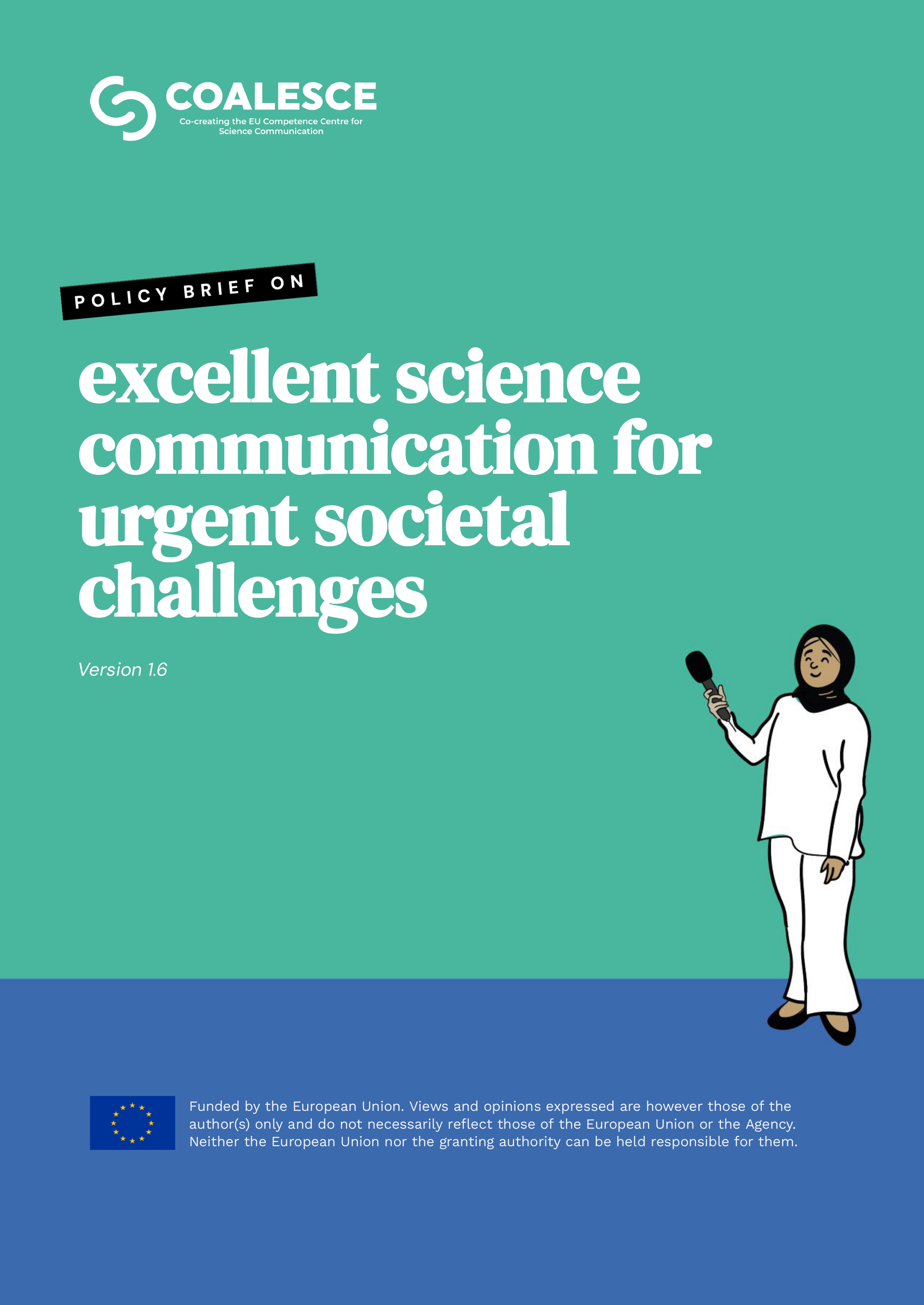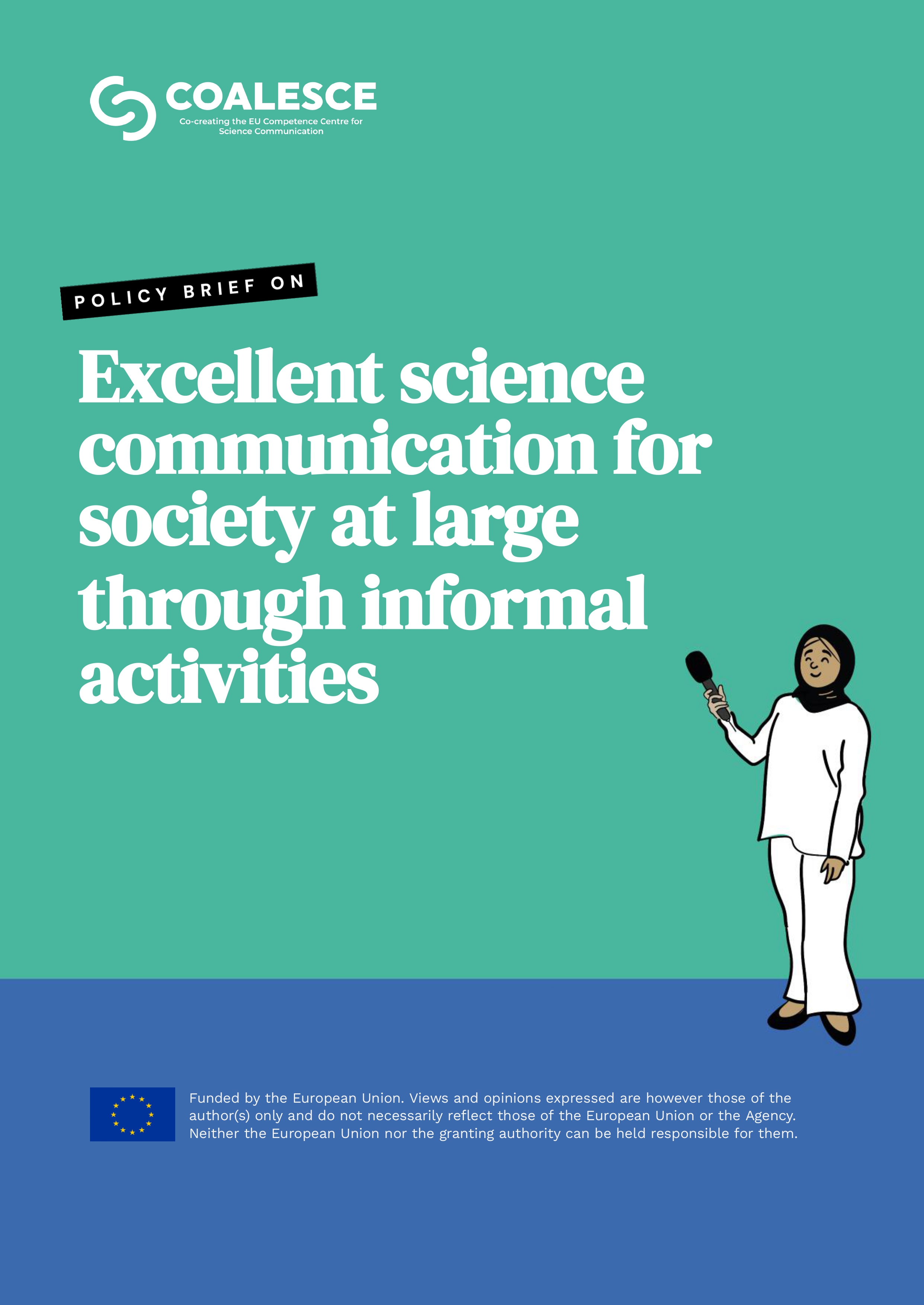Policy Brief on Excellent Science Communication for Urgent Societal Challenges

This policy brief summarises the outcomes from a series of individual interviews and topic-based workshops (that took place from February-March 2024) that investigated how science communication can contribute to navigating complex, urgent societal issues in four topic areas: climate emergency, water, oceans and soils, health & vaccines, and artificial intelligence & digital transformation.
In this first version, COALESCE untangles the conflicts and controversies in wicked problems, by exploring the perspectives of different stakeholders involved in urgent societal issues. Ultimately, we explore the question “what is effective science communication for urgent societal issues?” and set an agenda to support the field of science communication in reaching its full potential as a mediator in science-society and science-policy interactions, as well as public discussions on science, which can strengthen the future of European democracies.
DOI: 10.5281/zenodo.11082053
Policy Brief on Excellent Science Communication for Society at Large Through Informal Activities

This policy brief draws together the main conclusions from SwafS-19 projects that pertain to the role of informal science engagement, as well as on the outcomes of the series of COALESCE case clinics carried out with representatives of different organisations, on the topic of public engagement on climate change, as one of the key topics addressed within the project.
While the case clinics inform the challenges that are raised in the “Evidence and main findings” section, the policy recommendations are intended to be overarching, as follows:
1. Ensure science communication is inclusive and equitable
2. Promote dialogue in science communication
3. Support training for science communication practitioners
4. Foster a multistakeholder approach to informal science engagement
5. Integrate reflective practice into science communication
